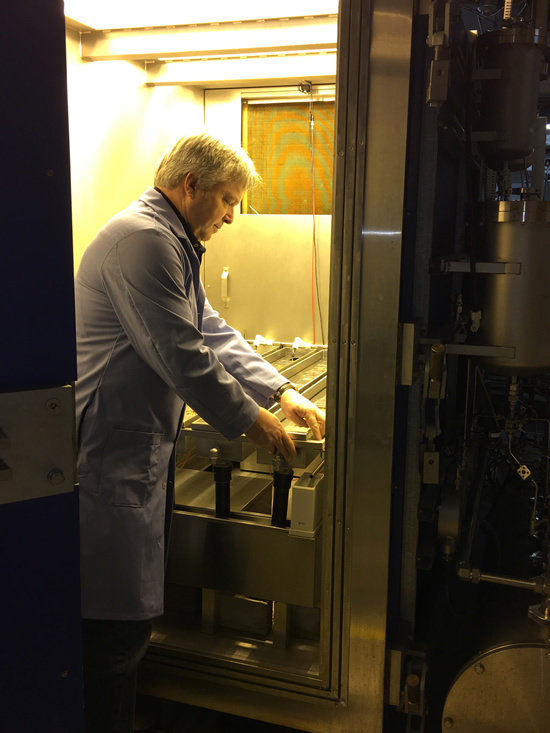
05 Mar Speakers’ Corner: “Ontario Garlic is Outta This World” – Professor Michael Dixon (2:00 to 2:25pm)
Traveling to Mars may soon be technically possible except for one major challenge: How to feed space travelers over many months and years. Through his research growing plants in the Controlled Environment Systems Research Facility at the University of Guelph, Professor Dixon provides a glimpse into Canada’s contribution to the International effort to grow food for long term space travel, and discusses whether fresh garlic may one day be harvested on the Red Planet.
Dr. Dixon is the Director of the Controlled Environment Systems Research Facility and program, University of Guelph. Dr. Dixon joined the University in 1985 as a National Sciences and Engineering Research Council of Canada fellow after earning his PhD from Edinburgh University in Scotland and is now a full professor.
Through his leadership a multidisciplinary team of scientists built the Controlled Environment Systems Research Facility (CESRF) at the University of Guelph. The 850 sq. m. facility provides a complete research venue suitable for measurement of plant growth, gas exchange, volatile organic compound (VOC) evolution, and nutrient remediation in a precisely controlled environment. The Facility is comprised of 24 sealed environment chambers including 14 variable-pressure plant-growth hypobaric chambers capable of sustaining a vacuum. The Facility is the most sophisticated and largest research venue in the world specifically dedicated to studying plant and microbial interactions in advanced life support systems.
Off campus he is the technical exchange coordinator for the International Advanced Life Support Working Group (IALSWG) which is a strategic planning group offering information and personnel exchange between international space agencies such as CSA, NASA, ESA, RSA and JAXA (Japan). From 2004 – 2011 Dr. Dixon served as Chair for the Space Exploration Advisory Committee of the Canadian Space Agency (CSA) and is a member of the Life Sciences and Technical Committee within the American Institute of Aeronautics and Astronautics.
As project leader for the Canadian research team investigating the contributions of plants to life support in space, Dr. Dixon formed the Space and Advanced Life Support Agriculture (SALSA) program at the University of Guelph. This program currently represents Canada’s prime contribution to the International Space program objectives in Life Support.
Dr. Dixon is also the project leader for the research team at Guelph investigating the biofiltration of indoor air as a method of alleviating what is commonly known as “sick building syndrome”.
Choose Activity or Speaker:
[wpupg-grid id=”activities-speakers”]


